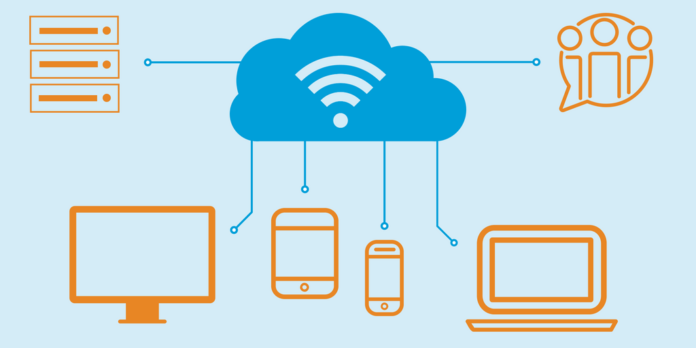What is cloud computing?
In its simplest form, cloud computing is the provision of computer services—such as networking, servers, storage, databases, software, analytics, and intelligence—through the Internet, or “the cloud,” in order to facilitate quicker innovation, more adaptable resource allocation, and economies of scale. Generally, you only pay for the cloud services you use, which helps you scale your infrastructure as your business needs change, administer your infrastructure more effectively, and save operational costs.
Types of cloud computing:
Public cloud
Third-party cloud service providers, who offer computing resources like servers and storage over the internet, own and run public clouds. One instance of a public cloud is Microsoft Azure. The cloud provider owns and manages all of the hardware, software, and other supporting infrastructure in a public cloud. A web browser is used to manage your account and access these services.
Private cloud
Cloud computing capabilities that are exclusively utilized by one company or group are referred to as private clouds. A private cloud may be physically housed in the on-site datacenter of the business. Additionally, some businesses pay outside service providers to host their private clouds. A private cloud is one where the infrastructure and services are kept up-to-date on a private network.
Hybrid cloud
Public and private clouds are combined in hybrid clouds, which are connected by a system that permits data and applications to be transferred between them. A hybrid cloud gives your company more deployment options and flexibility by enabling data and apps to migrate between private and public clouds. It also helps to optimize your current infrastructure, security, and compliance.
Top benefits of cloud computing:
Cost
Businesses can reduce their IT expenses by migrating to the cloud. This is due to the fact that cloud computing reduces the capital cost of purchasing hardware and software as well as the setup and maintenance of on-site datacenters, which include the racks of servers, the continuous electricity supply for cooling and power, and the IT professionals responsible for administering the infrastructure. It quickly accumulates.
Global Scale
One advantage of cloud computing services is their elastic scalability. In the language of the cloud, this refers to providing the appropriate quantity of IT resources—for instance, varying amounts of processing power, storage, and bandwidth—from the appropriate location at the appropriate time.
Performance
The largest cloud computing services are powered by a global network of safe datacenters that are updated frequently with the newest models of quick and powerful computing gear. Compared to a single corporate datacenter, this provides a number of advantages, including increased economies of scale and decreased network latency for applications.
Security
Numerous cloud service providers give you access to a wide range of technologies, rules, and controls that improve your entire security posture and guard your infrastructure, data, and apps against threats.
Speed
Because most cloud computing services are self-service and on-demand, even enormous quantities of computing power can be made available in a matter of minutes, usually with only a few mouse clicks. This flexibility allows enterprises to avoid worrying about capacity planning.
Productivity
A lot of “racking and stacking”—hardware setup, software patching, and other labor-intensive IT management tasks—is usually necessary for onsite datacenters. Many of these duties are no longer necessary thanks to cloud computing, freeing up IT workers’ time to focus on more crucial business objectives.
Reliability
Cloud computing reduces costs and facilitates data backup, disaster recovery, and business continuity by allowing data to be replicated at several redundant sites on the network of the cloud provider.






